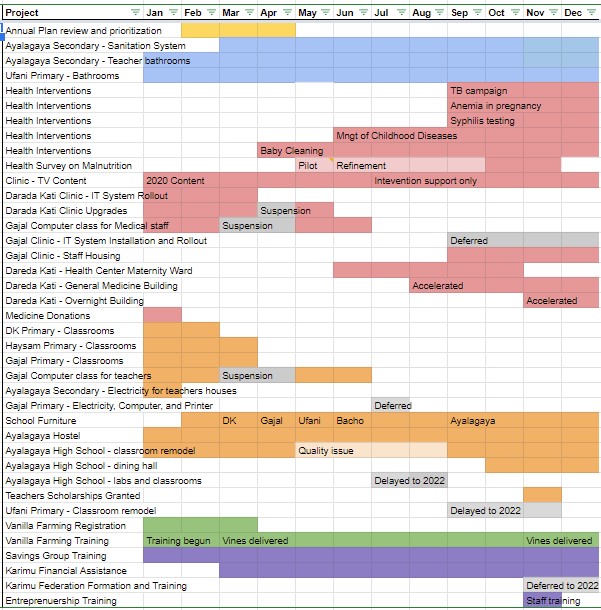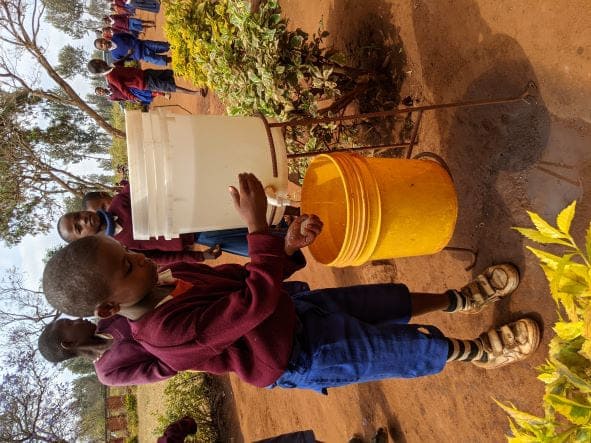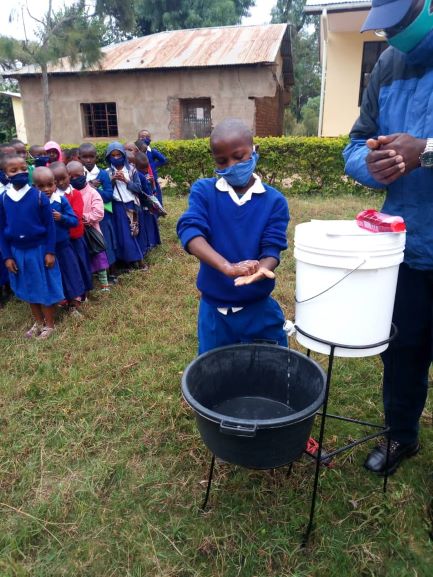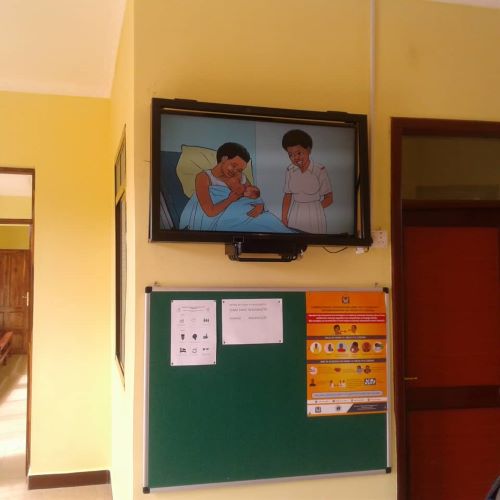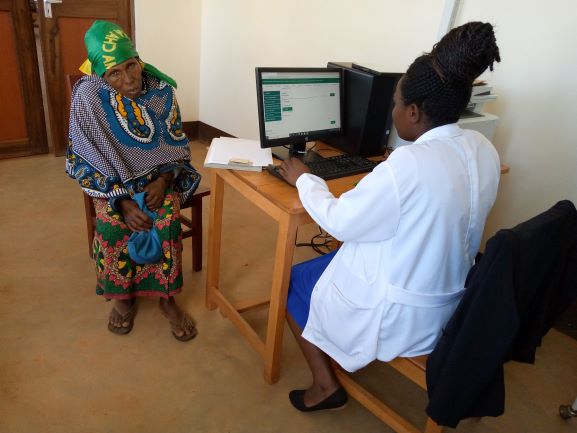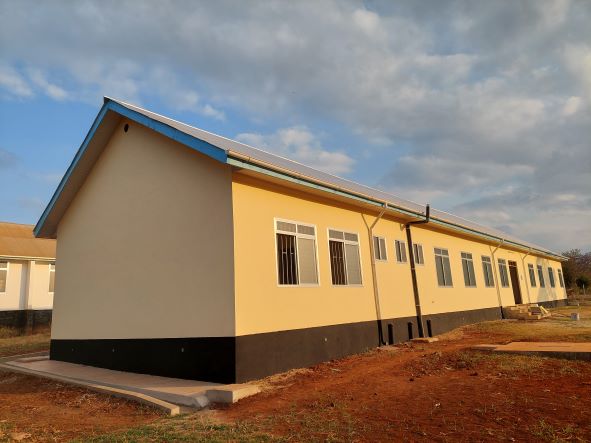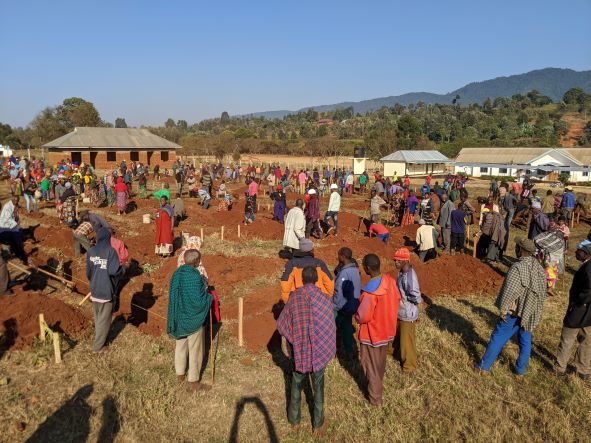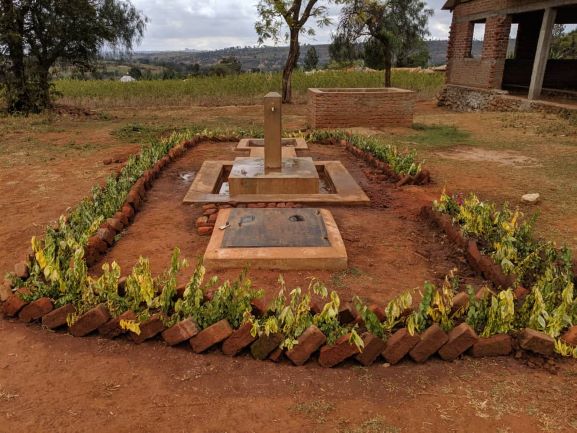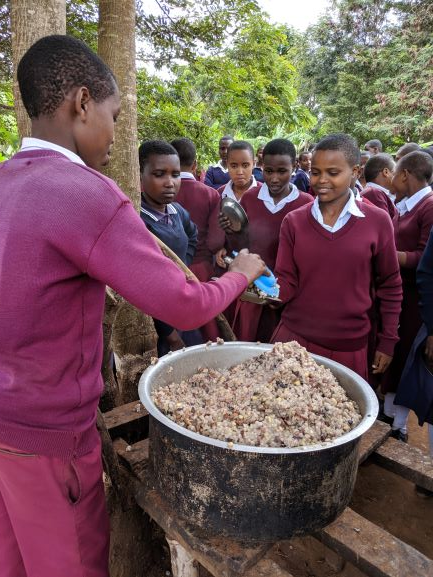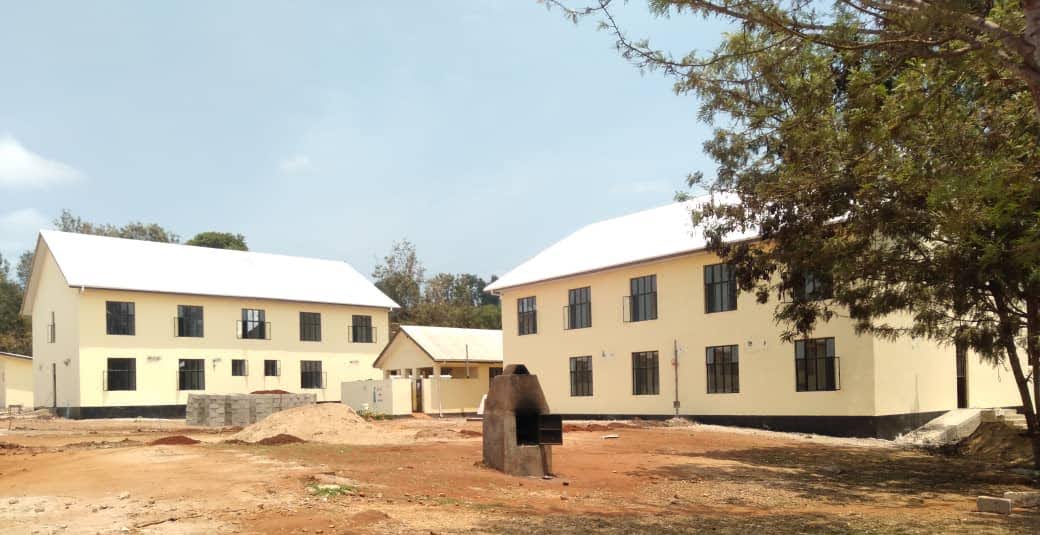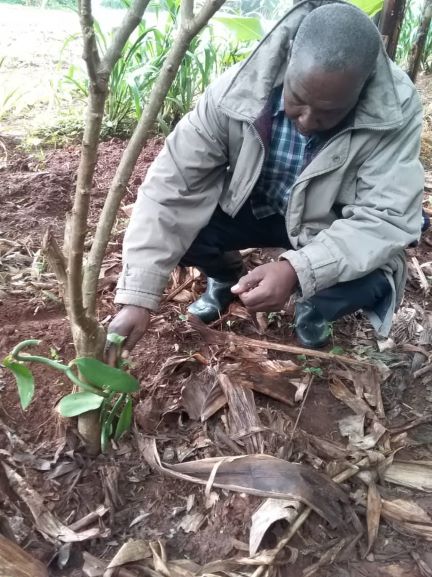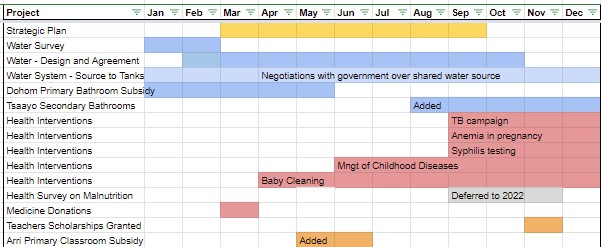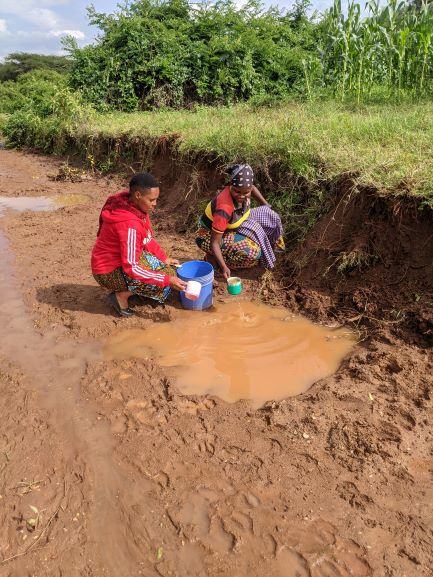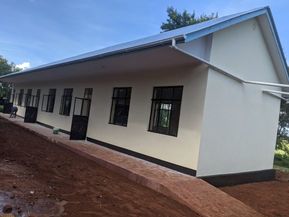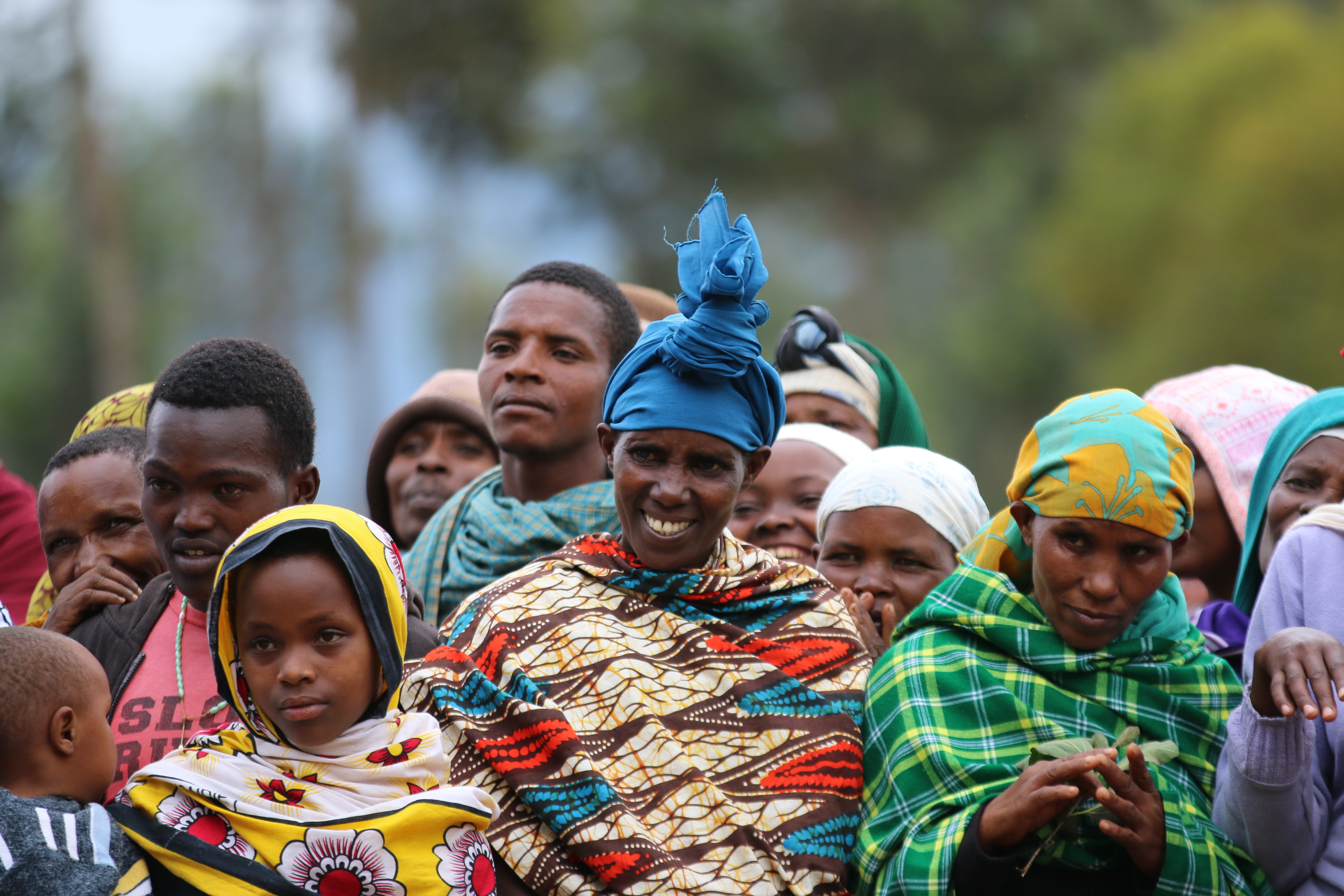
Karimu 2021 Goals
Last updated December 2021
We will update this page quarterly or as projects complete.
Fundraising
Our fundraising 2020/2021 season came to an end June 30th. On the surface, we had a great year raising $902,567.56 through 618 donations from 28 countries. A big reason to celebrate and to thank all our donors!!!!
However, analyzing the data more deeply, there are several reasons for concern:
- Our performance ($605,417.51) was worse than in 2019/2020 ($628,358.60) if we disconsidered a unique donation received this year ($297,150.05) which we won’t receive in the future.
- The number of donations dropped dramatically from 967 to 618.
- The number of active donors went down by 31%.
To address these challenges, we are working very hard to expand our donor base.
The high school and hostel projects were fully funded for 2021, however we diverted funds from the high school towards new primary classrooms when we learned that we would not be able to open the high school until 2022. Year 1 of the clean water for Arri project is funded and we managed to fully fund the health center maternity and outpatient wards. The income and primary school projects finished the 2020/2021 season still underfunded and have now been pushed into the 2021/2022 fundraising season.
We were notified in September that we were given a two year grant from Social Capital Foundation totalling $131,000! This grant will be funding our financial services, entrepreneurship training, and income generating projects, including our current Effective Savings Group project and Financial Assistance to Savings Groups project as well as new projects being defined.
Major Plan Changes
All projects that were not fully funded by the end of the 2020/2021 fundraising season were pushed into 2021/2022 and we will, once again, fundraise for them. Additionallly, we decided not to donate a computer and printer for Gajal Primary School, because they did not meet the condition of 90% attendance in the computer class and 90% passing rate in the final exam. We already told the head of the school and teachers about our decision and, while disappointed, they accepted Karimu’s decision. Please note that it is very important to have discipline and take agreements very seriously. That’s what Karimu always does and slowly the community will learn to respect and take such commitments seriously.
We added a project to the Financial Services and Income areas to provide entrepreneurship training specifically targeting rural communities. We expect to send 2 staff members to a Street Business School training in November if COVID precautions allow. This project will be covered under the Social Capital Foundation grant.
We added a project to build new bathrooms at Tsaayo Secondary School in Arri ward to avert school closure and it is fully funded based on an urgent fundraising campaign in August.
Here is the updated schedule:
Ayalagaya Ward
General
Annual Plan Review - We reviewed the updated plan based on fundraising results with the community and they are in agreement with the updates. We have seen tremendous progress by the community in addressing our expectations and agreements regarding maintenance of our projects and critical metrics for the success of the projects. We are thrilled!
Sanitation
The completion of the projects below represent the completion of the sanitation goals we set for Ayalagaya!
Complete Phase 1 - Creating a Healthy School - This phase provides clean bathrooms for all students and teachers.
- Ufani Primary School - Girls, boys, and teachers bathrooms are being built including facilities to support disabled children and menstruating girls. The community cleared the area and brought materials. The bathrooms are built and painted. The handwashing basins, water tank installation, and anaerobic tank are in progress.
- Teacher’s bathroom in Ayalagaya - The teacher’s bathroom in Ayalagaya had been postponed due to a disagreement on building it as part of a new administration building versus a stand alone structure. There is a new head of school and an agreement was reached to build the teachers’ bathrooms stand alone. The bathrooms are now complete and connected to the new sanitation system.
- Ayalagaya Secondary Sanitation System - We ran into problems in 2020 with the septic system onsite at Ayalagaya Secondary. We found a design flaw, plus some miscommunication about and misuse of the facilities. In addition, its capacity must be expanded to support the hostels and high school. We are building a new sanitation system for the secondary school, high school, and hostel complex. Construction started in March. The sanitation system is now connected and complete.
Health
See Karimu’s Health Program for an overview of goals and approach
Complete Phase 1 - Foundation for a Healthy Community - This focuses on providing access to basic healthcare within a 1 hour walk.
- Expand the Dareda Kati dispensary to fulfill all requirements defined by the program - All upgrades have been completed: construction of patient bathrooms, laundry, incinerator, placenta pit, sanitation system and a covered walkway between buildings.
- Implementation of Phase 1 of the health interventions - Karimu is driving a series of health interventions based on research into the most important interventions for rural and poor communities. The rollout is prioritized in partnership with the district, ward, and local medical leadership and focuses on those items which will have the greatest local impact that can be delivered with current facilities.
Handwashing intervention (completed 2Q20200) - A followup assessment indicates that last years’ handwashing intervention has been effective and is still in practice. During the volunteer trip to Arri and Ayalagaya in August/September of 2021, we witnessed kids washing their hands with soap regularly without being reminded. Views like the one in the following picture are now the norm. Additionally, all patients arriving in the clinics are now also washing their hands. A huge behavioral change!
Patient intake, triage, and isolation intervention (completed in 2Q2020) - A followup assessment indicated that we need to revisit and reinforce this training, particularly the importance of taking vital signs (and the consequences of not) for all patients. This is being done as part of the Integrated Management of Childhood Illnesses training, mentoring, and follow up.
- Tuberculosis campaign - Karimu worked with the district government to increase awareness of their campaign to identify, test, and treat residents with tuberculosis. The campaign ran very well over a couple of weeks and drew over 200 people to be screened. The clinics identified 35 additional cases of TB who are all now being treated. We will be working with the clinics to assess next steps, if any.
- Increase Syphilis testing and treatment - Current practice at the dispensaries is to test expectant mothers for Syphilis, but not their partners. Thus mothers-to-be may be negative at the beginning of their pregnancy, but contract the disease during pregnancy. We are working with the dispensaries to change this practice and supplement supplies as needed.
- Improve mother and newborn health - Anemia during pregnancy has been found to be high in Tanzania, but many of our dispensaries have neither the machine nor test strips to test mothers-to-be. Karimu has provided hemoglobin meters and test strips to the dispensaries in need and will supplement supplies until the government fully provides those needed.
- Detection and treatment of childhood illnesses - The Tanzanian medical curriculum was updated in recent years on diagnosing and treating childhood diseases, but most of our practitioners did not receive that training when they were in school. Karimu has funded the training for Ayalagaya, Arri, and neighboring wards within the district across 14 dispensaries. Training completed in June included both in class learning and in hospital practical training. The classes are being followed by a year of mentoring, monitoring, and reporting to reinforce learning and ensure understanding and correct application of the training. Equipment donations, e.g. pulse oximeters, infant scales, pediatric blood pressure cuff, neonatal resuscitation kit, and oxygen, have been made to clinics to support implementation of the class learning.
Training on Delivery and Newborn and Infant Care - After consulting with the local medical staff, we believe that we need to augment the education available to new mothers and students on infant care. This intervention will provide a curriculum for medical staff to deliver to new mothers, to host in the TV content, and for teachers to deliver to students. In Tanzania, children as young as 5 begin caring for their younger siblings. The teachers have been trained in the new curriculum and already delivered the education to all students. A curriculum for mothers-to-be has been developed, taught to the medical staff, and is now being taught to new mothers.
Safe stool disposal - This work was originally part of the baby cleaning intervention, but expanded as we began looking at the area overall. However, we are collapsing this back into only addressing baby stool disposal for 2021.
Malnutrition - To address malnutrition, Karimu will first conduct a door-to-door health survey to assess the situation. A survey pilot was completed in the summer and revisions made.We completed the survey in Ayalagaya and identified 4 children with severe malnutrition who have since been treated and are doing well. We will run the survey in Arri in 2022.
- Community health videos for the clinics - In 2020, Karimu installed TVs in the waiting areas at Dareda Kati and Gajal clinics to provide community health information. We plan to update content periodically, primarily driven by the health interventions or by requests from the medical staff.
Topics that have been running since mid 2020 include sanitation topics, breast feeding, newborn care, nutrition for infants and young children, family planning, and disease transmission, prevention, and symptoms of COVID-19, Ebola, Malaria, Cholera, and Diarrhea
Updates covering TB, Syphilis, HPV vaccinations, updates to the COVID-19 content, and baby cleaning and safe stool disposal as part of the health interventions were all rolled out.
Advance Phase 2 - Supporting Medical Staff Retention and Excellence
- Phase 2 focuses on improving medical staff retention and excellence through housing and advanced education.
- Housing for the medical staff of the Gajal dispensary - The community built the foundation and provided all necessary bricks. The house construction is complete, the painting is finished, the inner courtyard is paved, and sinks and bathrooms are installed. We are just finishing up the waste water system.
- IT system at Dareda Kati dispensary - The IT system was installed in October 2020 and has been fully rolled out. We worked with the Ministry of Health at the federal level to eliminate the requirement for manual reporting, so the IT system could be used fully. This issue has now been resolved and the government is accepting the IT system reports. Unfortunately, upon visiting the clinic in September and reviewing the data, we learned that some key information is missing from the IT system, in particular, vaccine records and services for pregnant women. We will be working to resolve this. Nevertheless, the staff are finding many benefits to the new IT system including more accurate record keeping and accounting.
- Gajal Medical Staff computer training - The Gajal medical staff completed its computer training with outstanding performance in June - everyone performed above 90%.
- IT system at Gajal dispensary - Based on the benefits seen at the Dareda Kati dispensary, we had planned to proceed with the system installation at the Gajal clinic this year. However, after discovering some information gaps we will defer installation until we can resolve the data gaps.
Start Phase 3 - Expanding the Medical Services through a Health Center - The key goal is to provide access to a health center (a mini-hospital) within a 30 minute drive. These projects are only partly funded at this moment pending receipt of donations committed but not received.
- Expand Dareda Kati Maternity Ward - The first step in transforming the dispensary into a health center will be the expansion of the maternity ward. It will be able to handle pregnancy emergencies like eclampsia, miscarriages , or other necessities, provide small surgeries including C-sections, care for premature infants, accommodate overnight stays before, during, and after labor, and expand family planning services. Construction was expected to begin in March 2021, but some design changes were required by the government that required building redesign. These have been completed and accepted. We broke ground in June. The maternity building is complete. It only needs to be connected to the original dispensary building by bringing a wall down. However, we don’t want to do this while patients are being treated in the building. For this reason, we will first complete the new outpatient building, move all medical services there for 2 weeks, and connect the new maternity ward to the current dispensary building. At that point, the health center will be opened with the maternity ward and the outpatient services while we continue the construction of the remaining buildings.
- Expand Dareda Kati Outpatient Services - A new general medicine building for outpatient visits will be built to expand clinic capacity and diagnostic capabilities. The government will increase medical staff at the clinic. Providing a separate building protects those coming in for family planning and maternity services from those coming to the clinic due to illness. In addition, the expanded clinic will include access to additional diagnostic machines such as x-rays. We received full approval of the architectural plans and, in fact, the government requested that we accelerate the construction to enable opening the outpatient building this year! The community turned out in full force to dig the building foundation in a single day. The building is up and painted inside and outside. The doors and windows are being installed.
- Build the Dareda Kati Overnight Building - Project kickoff was accelerated from 2022 into 2021 once the funds were secured. The foundations were dug by the community at the same time as the outpatient building in August and construction began in November. The walls are up and they are ready to add the roof trusses.
Maintenance and Sustainability
- Water asset maintenance: The Ward Water Committee is responsible for maintaining the ward water assets which include 10 storage tanks, 107 public water points, 620 private water points, and 17 km (~10.5 miles) of main and distribution pipes. Water points are situated within 500m (~⅓ mile) of all homes. Public water points deliver water free of charge to residents. The Ward Water Committee collects funds from private water points and distributes those funds to ward-wide water maintenance projects or other community projects. Each village also has a village water committee responsible for monitoring and maintaining assets wholly contained in their village. Each public water point has a water champion - a community member responsible for inspecting the water point, reporting maintenance issues, and ensuring water is not wasted. We now have a new water maintenance dashboard for tracking incidents and their resolution. We can see open and closed incidents by village or subvillage, by month, by asset, etc. We are generally pleased with water maintenance by the community.
- Health facility maintenance: Clinic staff are responsible for monitoring facilities, highlighting issues as they come up, recording them in their notebooks and engaging workers to resolve them. Karimu reviews maintenance at least quarterly. Overall we are happy with the progress in maintaining all facilities and proactively addressing issues without our direct involvement.
Education
See the Education Program for an overview of goals and approach. In general, the start of new projects, even given adequate fundraising, is subject to a set of conditions being met by the local community and school. The full list can be reviewed in the Education Program description, but the most notable ones are feeding all school children a meal, cleaning and maintaining the facilities, providing hygiene education and supplies, and student and teacher attendance rate of at least 90%. Maintenance had been a challenge at some schools but we are pleased to report that timely maintenance has improved significantly.
Advance Phase 2 - Building Adequate Learning Environment - Our goal is to provide healthy, bright, and sufficient classrooms to limit class sizes to 45 students per classroom. Even with all the completed construction we are still short of classrooms.
- Dareda Kati Primary : construction of 6 classrooms & 2 offices - started in August 2020, the construction is complete.
- Haysam Primary : construction of 3 classrooms & 1 office - started in November 2020, the construction is complete.
- Gajal Primary : construction of 3 classrooms & 1 office - started in November 2020, construction is complete.
- Ufani Primary: Ufani was the first school construction project back in 2008. This project will remodel the classrooms up to the standards of the other schools. The Ufani bathroom project is experiencing delays. Due to the heavy rain, the contributions of the community: stones, bricks, etc. have not been able to reach the construction site as mud made the roads impassable. While we had planned to begin this project in 2021, due to lack of funds, it will need to be delayed until 2022.
Open a High School in Ayalagaya Ward - Today Ayalagaya does not have a high school. The closest one is in Dareda Mission 18 km away, causing many children (particularly, girls) to give up studying after secondary school. Our goal was to open the new high school and hostels in July 2021, but due to required government inspections and dates, it looks like we will not be able to open the high school until next year.
- Expand Ayalagaya Secondary School into a High School - construction of 3 new classrooms and remodel of 11 (unfinished) classrooms and three offices - Started in September 2020, we just completed remodeling of 11 classrooms and 3 offices as well as construction of 3 additional classrooms. The construction is complete, including redoing the floors, however the new floors are again problematic. Our investigation concluded that it is the red dye we were using in the concrete which will no longer be used. Note that this project, together with the hostel, will just allow us to open the high school in 2022, but does not represent the full high school construction needs. In particular, it is critical that we build the physics and biology labs in order to be approved by the federal government as a science high school. Without that Ayalagaya can only teach social sciences, blocking their students from pursuing degrees such as engineering, medicine, computer science, etc. See the project below on expanding the high school.
- Hostels for boys and girls - Both the middle school students studying for their national exam as well as the students in the envisioned high school need safe and comfortable accommodations. This project will build a boys hostel and girls hostel accommodating 128 students each. This is our first 2-story construction in the area. The project broke ground in December 2020 and completed December 2021. The hostels project was recognized by the national government in June when it was visited by the national torch (an extremely prestigious recognition) and a plaque unveiled on site.
- Ayalagaya High School Dining Hall - The walls are going up on the dining hall and remodeling of the kitchen has begun
Complete Phase 3 - Promoting Academic Excellence - This phase focuses on providing resources usually missing in rural schools: a school library, adequate books, sufficient desks, sports, and arts material.
- Furniture for all schools - Karimu is funding the materials for the creation of additional school furniture. The furniture will be made by community members. This project will roll out as the schools organize them throughout 2021 This is part of the community’s contribution to a larger project which included the purchase of school books completed in 2020. Funding supports: student desks to reach a ratio of 2 students per desk for primary schools (1:1 in secondary and high schools), one desk and chair for each classroom for the teacher, cupboards & shelves in classrooms to keep school books, cupboards, desks, and chairs for each school office, goals in the soccer field and posts for netball and for volleyball. Furniture has been delivered to Ayalagaya Secondary, Dareda Kati, Gajal, Ufani and Bacho primary schools. Haysam furniture is under construction and should be delivered early in 2022.
Advance Phase 4 - Supporting Teacher Excellence - This phase focuses on teaching quality and teacher retention.
- Computer training for Gajal Primary School and Gajal Medical Staff - The weekly Saturday class started in October and was planned to run through March, but had to be suspended due to community illness and avoiding indoor congregate settings. The class restarted in May and completed in June. All participants that completed the training graduated with above 90% performance. However, attendance of the Gajal teachers was significantly below the level expected, and 2 did not take the final exam. As a consequence, Gajal Priimary will not receive the computer and printer from Karimu.
- Installation of electricity, computer, and printer at Gajal Primary School - this is subject to the successful completion of the computer training. As described previously, Gajal will receive electricity, but not the computer and printer due to the low participation in the computer class.
- Teachers scholarship program - For 2020/2021, 10 teachers in Ayalagaya Ward were advancing their teaching skills with help from Karimu and completed one more university year in June. Two teachers completed their diploma level study this year. Ten teachers have received scholarships for the 2021/2022 academic year.
- Ayalagaya Secondary Electricity for Teachers Housing - Providing electricity for lighting enables teachers to work from home at night grading papers and preparing classes. Availability of in-home electricity becomes even more critical as we seek to attract and retain the best high school teachers. This project completed January 2021.
Sustainability and Maintenance
- Maintenance: In 2019 and 2020 we had mixed results in resolving school maintenance issues resulting in an average of 108 days and 102 day respectively to resolve issues. Our Memorandum of Understanding requires more timely resolution, so we asked the schools to come up with a process that meets both our needs. Ayalagaya schools together with village leadership revised the process for monitoring, repairing, and communicating how Karimu-built school assets are being maintained while giving the schools more autonomy in the process. Teachers are now assigned assets to monitor e.g. a classroom or supplies. Repairs costing less than $45 should be completed within 30 days as they can be accommodated within the school discretionary funds while larger repairs will require community contribution and will take 2 months. Overall we are very pleased with 2021 maintenance. Average days to resolve has dropped to 37 days. We have only been disappointed with Ayaylagaya Secondary who has not been tracking and reporting as expected. We are currently working with the school and community to resolve the issue. We can track the maintenance issues in the school dashboard. We can track the maintenance issues now in the school dashboard .
Income
Income enhancement projects focus on increasing the income of households based on the local agricultural economy. We follow the priorities used by the local leadership to ensure more attention is given to those households with greater need, i.e., households with heads who are not able to work, are women, or young adults 18 to 35 years old.
- Vanilla farming - Registration to participate in the program began November 2020 and training began this year. We transferred vines to farmers, even in the pouring rain in March and April. Our income manager and the agronomists were committed to getting it done. Training will continue through the first 4 years which represents a full cycle from land preparation, to planting, to care, to harvest, to market. Our partnership with the Agricultural Institute to become a Center of Excellence for Vanilla fell through, but our other partner, Natural Extracts Industries , has stepped up to provide the project management to continue the project. We are ending our first year with 20 participants. Unfortunately, of the 1580 vines planted, our farmers have lost 1153. We are working with Natural Extracts Inc. to determine root cases and replace the lost vines. Fortunately, after the Agricultural Institute exited the partnership, we successfully moved our demonstration and starter vines and greenhouse to a new location at Bacho primary school.
Financial Services
The Financial Services Program aims to increase access to capital for at least 25% of households. The program aims to form and train savings groups, support the formation of a federation whose membership are savings groups, and provide capital for lending through the federation.
- Phase 1 - Train Effective Savings Groups - Karimu will train up to 30 Savings Groups, 10 of those being young adult groups, according to the Village Savings and Loan Association (VSLA) method. Karimu has graduated 6 savings groups from the training and is currently training an additional 3 after suspending training for 2 groups due to poor attendance or lack of transparency. We expect 2 groups to begin in 4Q and are continuing outreach to create more new groups. Our goal for 2021 is to have 20 groups that are in training or completed training by year end with at least 5 of them being formed from young adults. We fell short on new group creation and are ending the year with 10 groups either graduated or in training. Another 3-4 will start in 1Q2022. Retaining the interest in young adults has been a challenge and we are working with local leadership and developing youth ambassadors to increase interest, although 12% of members are young adults. In addition we expect savings groups to achieve and maintain 80% or higher operational efficiency and transparency according to the VSLA Evaluation Assessment Criteria. Our savings groups have increased their scores from an average of 48% in January 2019 to an average of 85.5% 4Q2021.
- Provide Financial Assistance to qualified savings groups . Until the federation becomes fully functional and able to provide loans to its savings group members, Karimu will provide financial assistance to qualified savings groups. We introduced this program to the community in late February and have funded all 6 of our graduated groups. Each group received between $850 and $2500 for up to 6 months at zero interest. All monthly payments have been on time and all groups fully repaid their loans. We are now on the second round of loans.
- Entrepreneurship Training - Karimu is beginning an entrepreneurship program in partnership with Street Business School. Founded in Uganda, Street Business School focuses on developing entrepreneurship skills in impoverished areas and has worked extensively with organizations in eastern Africa as well as India and South America. The preparation began with two of our Karimu staff attending a week-long immersion program in November where they learned to develop and deploy entrepreneurship training. They are now Certified Lead Coaches. Community training will begin to roll out in 2022.
- Phase 2 - Formation of a Savings and Loan Federation - Our current expectation is that this will be formed in 2022.
Arri Ward
General
- Needs Assessment - 2020 door-to-door survey results were combined with 54 village and ward level meetings to collect input in order to create a summarized list of community challenges and needs. The results fed into the formation of the strategic plan finalized in June.
- Strategic plan for Arri ward for 2021 - We have finalized the strategic plan for Arri and will be meeting with the community in July so they can finalize the prioritization of the projects. Based on the preliminary prioritization, the first major project will be to bring clean water to the whole ward.
Sanitation
- Bring clean water to Arri - The most pressing need is for clean water to be available to all residents, regardless of income level. This has been confirmed by the needs assessment mentioned above and input from all community members. A survey of the existing infrastructure has been completed. We have also completed the survey of the terrain and water sources and have a design for the system. The estimated total cost, $950K (including the cost to build the hundreds of water points), is significantly more than we had originally estimated, but is based on this full design. We have completed negotiating a water asset management agreement with the local and district government to provide free access to water from the public water points(in rural Tanzania most water points have a meter measuring the amount of water taken and members of the community pay for the amount of water fetched). We already have a verbal agreement on design, implementation, maintenance, and funding and are currently documenting everything in an MOU. We ran into a snag upon learning that our planned source would be too costly due to the terrain. In addition, the town of Babati, outside Ayalagaya, wanted to also use the same water source as Ayalagaya. After a detailed water assessment and many negotiation, Ayalagaya has agreed to share their water source with Arri ward. We have continued to be impacted by delays in signing the agreement, primarily with the regional water agency. With the agreement of the regional and district government and the ward, village and community leaders, we plan to move forward with beginning construction. The ward leaders assure us that they will manage issues with the regional water agency. We still need to have the agreement signed to begin construction, but we have selected an engineer for the project and still plan to begin this construction this year.
- Dohom primary bathrooms - In January, the Dohom sub village and Arri ward leadership asked Karimu’s assistance in completing bathroom construction for the Dohom primary school. The bathrooms being nothing more than boards over a hole in the ground, the school would have been closed without new bathrooms. The Dohom community worked with the government to raise money for the reconstruction, but they underestimated the cost. They completed the foundations, walls, and roofs, but need help with the finishing tasks: painting, fixtures, tiles… We are very happy that they are building the bathrooms along the lines of those we have built in Ayalagaya including flush toilets, sinks, and facilities that will support girls’ menstrual cycles. Since there is no running water, the community will use a village generator to pump water into the onsite water tank donated last year. The project was extended to include completion of the teachers bathrooms. Karimu contributed $4710 to the project completion and the construction was completed in April 2021.
- Tsaayo Secondary bathroom - Similar to Dohom, Tsaayo secondary school was under threat of closing due to unsanitary bathroom conditions. The Arri community and Karimu agreed to prioritize this project and ran an emergency funding campaign in August. Thankfully a generous donor came through and fully funded the project. We began construction in August and completed it in December.
Health
- Implementation of Phase 1 of the health interventions - The health interventions are being rolled out simultaneously in Ayalagya and Arri. See the interventions above in the Ayalagaya Health section.
Education
- Teachers scholarship program- For 2020/2021, 10 Arri teachers participated in the scholarship program this year and completed another year of university in June. Two teachers received their diplomas. Another 9 have been granted scholarships for the 2021/2022 academic year.
- Arri Primary classroom subsidy - Arri raised Tsh 13,000,000 (~$5600) to build 2 new classrooms at Arri Primary school. Arri primary has 669 students with only 5 classrooms, most open air rooms where classes must be canceled when it rains. However, the funds were only enough to build the foundations and raise the walls. They asked Karimu to help complete the project. This is not the normal process, but since we have not completed the strategic planning work and the community contributed more than 45% of the total cost, Karimu agreed to complete the work. The community signed the Karimu Memorandum of Understanding and the project was completed in June.
Babati District
Karimu Social Fund - Based on the success and visibility of Karimu within Babati district and our help to district-wide clinics in support of COVID-19 prevention, several villages within the Babati district have come to Karimu requesting support for more areas. Karimu’s model is dependent on knowing the communities we serve well, developing trust with community members, and being fully engaged with the community in all aspects of the project. This is not possible with one off projects. In addition, eliminating poverty requires working on all three pillars: health and sanitation, income and education, and financial services, not just one. Broadening our projects without our full engagement runs counter-strategic to our core mission and operational model. However, Karimu has agreed to start a Karimu Social Fund which would support an annual request by the district government to support one or two projects within the district, but outside the wards in which we currently focus. The district has asked for funds to help rebuild Majengo Primary School in Qash ward after a storm destroyed it. The local community, approximately 320 households, built the foundation and walls. The government paid for the roofing. Karimu did the rest. The classrooms have the quality of our projects: doors, windows with glass, cement floors, gutters, and electricity. This project completed April 2021.
We already received a letter from the district commissioner asking Karimu to use next year’s social fund towards the construction of teacher housing in the newly constructed Secondary school in the very remote area of Boay. The construction is underway. The walls and roofing are complete. Plastering inside and outside is in progress.
Additionally, we recently made an exception and agreed to satisfy another government request. The main regional hospital in Babati (the state capital) which is the main center for treatment of COVID-19 lacks everything: masks, sanitizers, oxygen, etc. We just provided approximately $10,000 in material to cover everything that was lacking
Karimu 2021 Goals
Last updated December 2021
We will update this page quarterly or as projects complete.
Fundraising
Our fundraising 2020/2021 season came to an end June 30th. On the surface, we had a great year raising $902,567.56 through 618 donations from 28 countries. A big reason to celebrate and to thank all our donors!!!!
However, analyzing the data more deeply, there are several reasons for concern:
- Our performance ($605,417.51) was worse than in 2019/2020 ($628,358.60) if we disconsidered a unique donation received this year ($297,150.05) which we won’t receive in the future.
- The number of donations dropped dramatically from 967 to 618.
- The number of active donors went down by 31%.
To address these challenges, we are working very hard to expand our donor base.
The high school and hostel projects were fully funded for 2021, however we diverted funds from the high school towards new primary classrooms when we learned that we would not be able to open the high school until 2022. Year 1 of the clean water for Arri project is funded and we managed to fully fund the health center maternity and outpatient wards. The income and primary school projects finished the 2020/2021 season still underfunded and have now been pushed into the 2021/2022 fundraising season.
We were notified in September that we were given a two year grant from Social Capital Foundation totalling $131,000! This grant will be funding our financial services, entrepreneurship training, and income generating projects, including our current Effective Savings Group project and Financial Assistance to Savings Groups project as well as new projects being defined.
Major Plan Changes
All projects that were not fully funded by the end of the 2020/2021 fundraising season were pushed into 2021/2022 and we will, once again, fundraise for them. Additionallly, we decided not to donate a computer and printer for Gajal Primary School, because they did not meet the condition of 90% attendance in the computer class and 90% passing rate in the final exam. We already told the head of the school and teachers about our decision and, while disappointed, they accepted Karimu’s decision. Please note that it is very important to have discipline and take agreements very seriously. That’s what Karimu always does and slowly the community will learn to respect and take such commitments seriously.
We added a project to the Financial Services and Income areas to provide entrepreneurship training specifically targeting rural communities. We expect to send 2 staff members to a Street Business School training in November if COVID precautions allow. This project will be covered under the Social Capital Foundation grant.
We added a project to build new bathrooms at Tsaayo Secondary School in Arri ward to avert school closure and it is fully funded based on an urgent fundraising campaign in August.
Here is the updated schedule:
Ayalagaya Ward
General
Annual Plan Review - We reviewed the updated plan based on fundraising results with the community and they are in agreement with the updates. We have seen tremendous progress by the community in addressing our expectations and agreements regarding maintenance of our projects and critical metrics for the success of the projects. We are thrilled!
Sanitation
The completion of the projects below represent the completion of the sanitation goals we set for Ayalagaya!
Complete Phase 1 - Creating a Healthy School - This phase provides clean bathrooms for all students and teachers.
- Ufani Primary School - Girls, boys, and teachers bathrooms are being built including facilities to support disabled children and menstruating girls. The community cleared the area and brought materials. The bathrooms are built and painted. The handwashing basins, water tank installation, and anaerobic tank are in progress.
- Teacher’s bathroom in Ayalagaya - The teacher’s bathroom in Ayalagaya had been postponed due to a disagreement on building it as part of a new administration building versus a stand alone structure. There is a new head of school and an agreement was reached to build the teachers’ bathrooms stand alone. The bathrooms are now complete and connected to the new sanitation system.
- Ayalagaya Secondary Sanitation System - We ran into problems in 2020 with the septic system onsite at Ayalagaya Secondary. We found a design flaw, plus some miscommunication about and misuse of the facilities. In addition, its capacity must be expanded to support the hostels and high school. We are building a new sanitation system for the secondary school, high school, and hostel complex. Construction started in March. The sanitation system is now connected and complete.
Health
See Karimu’s Health Program for an overview of goals and approach
Complete Phase 1 - Foundation for a Healthy Community - This focuses on providing access to basic healthcare within a 1 hour walk.
- Expand the Dareda Kati dispensary to fulfill all requirements defined by the program - All upgrades have been completed: construction of patient bathrooms, laundry, incinerator, placenta pit, sanitation system and a covered walkway between buildings.
- Implementation of Phase 1 of the health interventions - Karimu is driving a series of health interventions based on research into the most important interventions for rural and poor communities. The rollout is prioritized in partnership with the district, ward, and local medical leadership and focuses on those items which will have the greatest local impact that can be delivered with current facilities.
Handwashing intervention (completed 2Q20200) - A followup assessment indicates that last years’ handwashing intervention has been effective and is still in practice. During the volunteer trip to Arri and Ayalagaya in August/September of 2021, we witnessed kids washing their hands with soap regularly without being reminded. Views like the one in the following picture are now the norm. Additionally, all patients arriving in the clinics are now also washing their hands. A huge behavioral change!
Patient intake, triage, and isolation intervention (completed in 2Q2020) - A followup assessment indicated that we need to revisit and reinforce this training, particularly the importance of taking vital signs (and the consequences of not) for all patients. This is being done as part of the Integrated Management of Childhood Illnesses training, mentoring, and follow up.
- Tuberculosis campaign - Karimu worked with the district government to increase awareness of their campaign to identify, test, and treat residents with tuberculosis. The campaign ran very well over a couple of weeks and drew over 200 people to be screened. The clinics identified 35 additional cases of TB who are all now being treated. We will be working with the clinics to assess next steps, if any.
- Increase Syphilis testing and treatment - Current practice at the dispensaries is to test expectant mothers for Syphilis, but not their partners. Thus mothers-to-be may be negative at the beginning of their pregnancy, but contract the disease during pregnancy. We are working with the dispensaries to change this practice and supplement supplies as needed.
- Improve mother and newborn health - Anemia during pregnancy has been found to be high in Tanzania, but many of our dispensaries have neither the machine nor test strips to test mothers-to-be. Karimu has provided hemoglobin meters and test strips to the dispensaries in need and will supplement supplies until the government fully provides those needed.
- Detection and treatment of childhood illnesses - The Tanzanian medical curriculum was updated in recent years on diagnosing and treating childhood diseases, but most of our practitioners did not receive that training when they were in school. Karimu has funded the training for Ayalagaya, Arri, and neighboring wards within the district across 14 dispensaries. Training completed in June included both in class learning and in hospital practical training. The classes are being followed by a year of mentoring, monitoring, and reporting to reinforce learning and ensure understanding and correct application of the training. Equipment donations, e.g. pulse oximeters, infant scales, pediatric blood pressure cuff, neonatal resuscitation kit, and oxygen, have been made to clinics to support implementation of the class learning.
Training on Delivery and Newborn and Infant Care - After consulting with the local medical staff, we believe that we need to augment the education available to new mothers and students on infant care. This intervention will provide a curriculum for medical staff to deliver to new mothers, to host in the TV content, and for teachers to deliver to students. In Tanzania, children as young as 5 begin caring for their younger siblings. The teachers have been trained in the new curriculum and already delivered the education to all students. A curriculum for mothers-to-be has been developed, taught to the medical staff, and is now being taught to new mothers.
Safe stool disposal - This work was originally part of the baby cleaning intervention, but expanded as we began looking at the area overall. However, we are collapsing this back into only addressing baby stool disposal for 2021.
Malnutrition - To address malnutrition, Karimu will first conduct a door-to-door health survey to assess the situation. A survey pilot was completed in the summer and revisions made.We completed the survey in Ayalagaya and identified 4 children with severe malnutrition who have since been treated and are doing well. We will run the survey in Arri in 2022.
- Community health videos for the clinics - In 2020, Karimu installed TVs in the waiting areas at Dareda Kati and Gajal clinics to provide community health information. We plan to update content periodically, primarily driven by the health interventions or by requests from the medical staff.
Topics that have been running since mid 2020 include sanitation topics, breast feeding, newborn care, nutrition for infants and young children, family planning, and disease transmission, prevention, and symptoms of COVID-19, Ebola, Malaria, Cholera, and Diarrhea
Updates covering TB, Syphilis, HPV vaccinations, updates to the COVID-19 content, and baby cleaning and safe stool disposal as part of the health interventions were all rolled out.
Advance Phase 2 - Supporting Medical Staff Retention and Excellence
- Phase 2 focuses on improving medical staff retention and excellence through housing and advanced education.
- Housing for the medical staff of the Gajal dispensary - The community built the foundation and provided all necessary bricks. The house construction is complete, the painting is finished, the inner courtyard is paved, and sinks and bathrooms are installed. We are just finishing up the waste water system.
- IT system at Dareda Kati dispensary - The IT system was installed in October 2020 and has been fully rolled out. We worked with the Ministry of Health at the federal level to eliminate the requirement for manual reporting, so the IT system could be used fully. This issue has now been resolved and the government is accepting the IT system reports. Unfortunately, upon visiting the clinic in September and reviewing the data, we learned that some key information is missing from the IT system, in particular, vaccine records and services for pregnant women. We will be working to resolve this. Nevertheless, the staff are finding many benefits to the new IT system including more accurate record keeping and accounting.
- Gajal Medical Staff computer training - The Gajal medical staff completed its computer training with outstanding performance in June - everyone performed above 90%.
- IT system at Gajal dispensary - Based on the benefits seen at the Dareda Kati dispensary, we had planned to proceed with the system installation at the Gajal clinic this year. However, after discovering some information gaps we will defer installation until we can resolve the data gaps.
Start Phase 3 - Expanding the Medical Services through a Health Center - The key goal is to provide access to a health center (a mini-hospital) within a 30 minute drive. These projects are only partly funded at this moment pending receipt of donations committed but not received.
- Expand Dareda Kati Maternity Ward - The first step in transforming the dispensary into a health center will be the expansion of the maternity ward. It will be able to handle pregnancy emergencies like eclampsia, miscarriages , or other necessities, provide small surgeries including C-sections, care for premature infants, accommodate overnight stays before, during, and after labor, and expand family planning services. Construction was expected to begin in March 2021, but some design changes were required by the government that required building redesign. These have been completed and accepted. We broke ground in June. The maternity building is complete. It only needs to be connected to the original dispensary building by bringing a wall down. However, we don’t want to do this while patients are being treated in the building. For this reason, we will first complete the new outpatient building, move all medical services there for 2 weeks, and connect the new maternity ward to the current dispensary building. At that point, the health center will be opened with the maternity ward and the outpatient services while we continue the construction of the remaining buildings.
- Expand Dareda Kati Outpatient Services - A new general medicine building for outpatient visits will be built to expand clinic capacity and diagnostic capabilities. The government will increase medical staff at the clinic. Providing a separate building protects those coming in for family planning and maternity services from those coming to the clinic due to illness. In addition, the expanded clinic will include access to additional diagnostic machines such as x-rays. We received full approval of the architectural plans and, in fact, the government requested that we accelerate the construction to enable opening the outpatient building this year! The community turned out in full force to dig the building foundation in a single day. The building is up and painted inside and outside. The doors and windows are being installed.
- Build the Dareda Kati Overnight Building - Project kickoff was accelerated from 2022 into 2021 once the funds were secured. The foundations were dug by the community at the same time as the outpatient building in August and construction began in November. The walls are up and they are ready to add the roof trusses.
Maintenance and Sustainability
- Water asset maintenance: The Ward Water Committee is responsible for maintaining the ward water assets which include 10 storage tanks, 107 public water points, 620 private water points, and 17 km (~10.5 miles) of main and distribution pipes. Water points are situated within 500m (~⅓ mile) of all homes. Public water points deliver water free of charge to residents. The Ward Water Committee collects funds from private water points and distributes those funds to ward-wide water maintenance projects or other community projects. Each village also has a village water committee responsible for monitoring and maintaining assets wholly contained in their village. Each public water point has a water champion - a community member responsible for inspecting the water point, reporting maintenance issues, and ensuring water is not wasted. We now have a new water maintenance dashboard for tracking incidents and their resolution. We can see open and closed incidents by village or subvillage, by month, by asset, etc. We are generally pleased with water maintenance by the community.
- Health facility maintenance: Clinic staff are responsible for monitoring facilities, highlighting issues as they come up, recording them in their notebooks and engaging workers to resolve them. Karimu reviews maintenance at least quarterly. Overall we are happy with the progress in maintaining all facilities and proactively addressing issues without our direct involvement.
Education
See the Education Program for an overview of goals and approach. In general, the start of new projects, even given adequate fundraising, is subject to a set of conditions being met by the local community and school. The full list can be reviewed in the Education Program description, but the most notable ones are feeding all school children a meal, cleaning and maintaining the facilities, providing hygiene education and supplies, and student and teacher attendance rate of at least 90%. Maintenance had been a challenge at some schools but we are pleased to report that timely maintenance has improved significantly.
Advance Phase 2 - Building Adequate Learning Environment - Our goal is to provide healthy, bright, and sufficient classrooms to limit class sizes to 45 students per classroom. Even with all the completed construction we are still short of classrooms.
- Dareda Kati Primary : construction of 6 classrooms & 2 offices - started in August 2020, the construction is complete.
- Haysam Primary : construction of 3 classrooms & 1 office - started in November 2020, the construction is complete.
- Gajal Primary : construction of 3 classrooms & 1 office - started in November 2020, construction is complete.
- Ufani Primary: Ufani was the first school construction project back in 2008. This project will remodel the classrooms up to the standards of the other schools. The Ufani bathroom project is experiencing delays. Due to the heavy rain, the contributions of the community: stones, bricks, etc. have not been able to reach the construction site as mud made the roads impassable. While we had planned to begin this project in 2021, due to lack of funds, it will need to be delayed until 2022.
Open a High School in Ayalagaya Ward - Today Ayalagaya does not have a high school. The closest one is in Dareda Mission 18 km away, causing many children (particularly, girls) to give up studying after secondary school. Our goal was to open the new high school and hostels in July 2021, but due to required government inspections and dates, it looks like we will not be able to open the high school until next year.
- Expand Ayalagaya Secondary School into a High School - construction of 3 new classrooms and remodel of 11 (unfinished) classrooms and three offices - Started in September 2020, we just completed remodeling of 11 classrooms and 3 offices as well as construction of 3 additional classrooms. The construction is complete, including redoing the floors, however the new floors are again problematic. Our investigation concluded that it is the red dye we were using in the concrete which will no longer be used. Note that this project, together with the hostel, will just allow us to open the high school in 2022, but does not represent the full high school construction needs. In particular, it is critical that we build the physics and biology labs in order to be approved by the federal government as a science high school. Without that Ayalagaya can only teach social sciences, blocking their students from pursuing degrees such as engineering, medicine, computer science, etc. See the project below on expanding the high school.
- Hostels for boys and girls - Both the middle school students studying for their national exam as well as the students in the envisioned high school need safe and comfortable accommodations. This project will build a boys hostel and girls hostel accommodating 128 students each. This is our first 2-story construction in the area. The project broke ground in December 2020 and completed December 2021. The hostels project was recognized by the national government in June when it was visited by the national torch (an extremely prestigious recognition) and a plaque unveiled on site.
- Ayalagaya High School Dining Hall - The walls are going up on the dining hall and remodeling of the kitchen has begun
Complete Phase 3 - Promoting Academic Excellence - This phase focuses on providing resources usually missing in rural schools: a school library, adequate books, sufficient desks, sports, and arts material.
- Furniture for all schools - Karimu is funding the materials for the creation of additional school furniture. The furniture will be made by community members. This project will roll out as the schools organize them throughout 2021 This is part of the community’s contribution to a larger project which included the purchase of school books completed in 2020. Funding supports: student desks to reach a ratio of 2 students per desk for primary schools (1:1 in secondary and high schools), one desk and chair for each classroom for the teacher, cupboards & shelves in classrooms to keep school books, cupboards, desks, and chairs for each school office, goals in the soccer field and posts for netball and for volleyball. Furniture has been delivered to Ayalagaya Secondary, Dareda Kati, Gajal, Ufani and Bacho primary schools. Haysam furniture is under construction and should be delivered early in 2022.
Advance Phase 4 - Supporting Teacher Excellence - This phase focuses on teaching quality and teacher retention.
- Computer training for Gajal Primary School and Gajal Medical Staff - The weekly Saturday class started in October and was planned to run through March, but had to be suspended due to community illness and avoiding indoor congregate settings. The class restarted in May and completed in June. All participants that completed the training graduated with above 90% performance. However, attendance of the Gajal teachers was significantly below the level expected, and 2 did not take the final exam. As a consequence, Gajal Priimary will not receive the computer and printer from Karimu.
- Installation of electricity, computer, and printer at Gajal Primary School - this is subject to the successful completion of the computer training. As described previously, Gajal will receive electricity, but not the computer and printer due to the low participation in the computer class.
- Teachers scholarship program - For 2020/2021, 10 teachers in Ayalagaya Ward were advancing their teaching skills with help from Karimu and completed one more university year in June. Two teachers completed their diploma level study this year. Ten teachers have received scholarships for the 2021/2022 academic year.
- Ayalagaya Secondary Electricity for Teachers Housing - Providing electricity for lighting enables teachers to work from home at night grading papers and preparing classes. Availability of in-home electricity becomes even more critical as we seek to attract and retain the best high school teachers. This project completed January 2021.
Sustainability and Maintenance
- Maintenance: In 2019 and 2020 we had mixed results in resolving school maintenance issues resulting in an average of 108 days and 102 day respectively to resolve issues. Our Memorandum of Understanding requires more timely resolution, so we asked the schools to come up with a process that meets both our needs. Ayalagaya schools together with village leadership revised the process for monitoring, repairing, and communicating how Karimu-built school assets are being maintained while giving the schools more autonomy in the process. Teachers are now assigned assets to monitor e.g. a classroom or supplies. Repairs costing less than $45 should be completed within 30 days as they can be accommodated within the school discretionary funds while larger repairs will require community contribution and will take 2 months. Overall we are very pleased with 2021 maintenance. Average days to resolve has dropped to 37 days. We have only been disappointed with Ayaylagaya Secondary who has not been tracking and reporting as expected. We are currently working with the school and community to resolve the issue. We can track the maintenance issues in the school dashboard. We can track the maintenance issues now in the school dashboard .
Income
Income enhancement projects focus on increasing the income of households based on the local agricultural economy. We follow the priorities used by the local leadership to ensure more attention is given to those households with greater need, i.e., households with heads who are not able to work, are women, or young adults 18 to 35 years old.
- Vanilla farming - Registration to participate in the program began November 2020 and training began this year. We transferred vines to farmers, even in the pouring rain in March and April. Our income manager and the agronomists were committed to getting it done. Training will continue through the first 4 years which represents a full cycle from land preparation, to planting, to care, to harvest, to market. Our partnership with the Agricultural Institute to become a Center of Excellence for Vanilla fell through, but our other partner, Natural Extracts Industries , has stepped up to provide the project management to continue the project. We are ending our first year with 20 participants. Unfortunately, of the 1580 vines planted, our farmers have lost 1153. We are working with Natural Extracts Inc. to determine root cases and replace the lost vines. Fortunately, after the Agricultural Institute exited the partnership, we successfully moved our demonstration and starter vines and greenhouse to a new location at Bacho primary school.
Financial Services
The Financial Services Program aims to increase access to capital for at least 25% of households. The program aims to form and train savings groups, support the formation of a federation whose membership are savings groups, and provide capital for lending through the federation.
- Phase 1 - Train Effective Savings Groups - Karimu will train up to 30 Savings Groups, 10 of those being young adult groups, according to the Village Savings and Loan Association (VSLA) method. Karimu has graduated 6 savings groups from the training and is currently training an additional 3 after suspending training for 2 groups due to poor attendance or lack of transparency. We expect 2 groups to begin in 4Q and are continuing outreach to create more new groups. Our goal for 2021 is to have 20 groups that are in training or completed training by year end with at least 5 of them being formed from young adults. We fell short on new group creation and are ending the year with 10 groups either graduated or in training. Another 3-4 will start in 1Q2022. Retaining the interest in young adults has been a challenge and we are working with local leadership and developing youth ambassadors to increase interest, although 12% of members are young adults. In addition we expect savings groups to achieve and maintain 80% or higher operational efficiency and transparency according to the VSLA Evaluation Assessment Criteria. Our savings groups have increased their scores from an average of 48% in January 2019 to an average of 85.5% 4Q2021.
- Provide Financial Assistance to qualified savings groups . Until the federation becomes fully functional and able to provide loans to its savings group members, Karimu will provide financial assistance to qualified savings groups. We introduced this program to the community in late February and have funded all 6 of our graduated groups. Each group received between $850 and $2500 for up to 6 months at zero interest. All monthly payments have been on time and all groups fully repaid their loans. We are now on the second round of loans.
- Entrepreneurship Training - Karimu is beginning an entrepreneurship program in partnership with Street Business School. Founded in Uganda, Street Business School focuses on developing entrepreneurship skills in impoverished areas and has worked extensively with organizations in eastern Africa as well as India and South America. The preparation began with two of our Karimu staff attending a week-long immersion program in November where they learned to develop and deploy entrepreneurship training. They are now Certified Lead Coaches. Community training will begin to roll out in 2022.
- Phase 2 - Formation of a Savings and Loan Federation - Our current expectation is that this will be formed in 2022.
Arri Ward
General
- Needs Assessment - 2020 door-to-door survey results were combined with 54 village and ward level meetings to collect input in order to create a summarized list of community challenges and needs. The results fed into the formation of the strategic plan finalized in June.
- Strategic plan for Arri ward for 2021 - We have finalized the strategic plan for Arri and will be meeting with the community in July so they can finalize the prioritization of the projects. Based on the preliminary prioritization, the first major project will be to bring clean water to the whole ward.
Sanitation
- Bring clean water to Arri - The most pressing need is for clean water to be available to all residents, regardless of income level. This has been confirmed by the needs assessment mentioned above and input from all community members. A survey of the existing infrastructure has been completed. We have also completed the survey of the terrain and water sources and have a design for the system. The estimated total cost, $950K (including the cost to build the hundreds of water points), is significantly more than we had originally estimated, but is based on this full design. We have completed negotiating a water asset management agreement with the local and district government to provide free access to water from the public water points(in rural Tanzania most water points have a meter measuring the amount of water taken and members of the community pay for the amount of water fetched). We already have a verbal agreement on design, implementation, maintenance, and funding and are currently documenting everything in an MOU. We ran into a snag upon learning that our planned source would be too costly due to the terrain. In addition, the town of Babati, outside Ayalagaya, wanted to also use the same water source as Ayalagaya. After a detailed water assessment and many negotiation, Ayalagaya has agreed to share their water source with Arri ward. We have continued to be impacted by delays in signing the agreement, primarily with the regional water agency. With the agreement of the regional and district government and the ward, village and community leaders, we plan to move forward with beginning construction. The ward leaders assure us that they will manage issues with the regional water agency. We still need to have the agreement signed to begin construction, but we have selected an engineer for the project and still plan to begin this construction this year.
- Dohom primary bathrooms - In January, the Dohom sub village and Arri ward leadership asked Karimu’s assistance in completing bathroom construction for the Dohom primary school. The bathrooms being nothing more than boards over a hole in the ground, the school would have been closed without new bathrooms. The Dohom community worked with the government to raise money for the reconstruction, but they underestimated the cost. They completed the foundations, walls, and roofs, but need help with the finishing tasks: painting, fixtures, tiles… We are very happy that they are building the bathrooms along the lines of those we have built in Ayalagaya including flush toilets, sinks, and facilities that will support girls’ menstrual cycles. Since there is no running water, the community will use a village generator to pump water into the onsite water tank donated last year. The project was extended to include completion of the teachers bathrooms. Karimu contributed $4710 to the project completion and the construction was completed in April 2021.
- Tsaayo Secondary bathroom - Similar to Dohom, Tsaayo secondary school was under threat of closing due to unsanitary bathroom conditions. The Arri community and Karimu agreed to prioritize this project and ran an emergency funding campaign in August. Thankfully a generous donor came through and fully funded the project. We began construction in August and completed it in December.
Health
- Implementation of Phase 1 of the health interventions - The health interventions are being rolled out simultaneously in Ayalagya and Arri. See the interventions above in the Ayalagaya Health section.
Education
- Teachers scholarship program- For 2020/2021, 10 Arri teachers participated in the scholarship program this year and completed another year of university in June. Two teachers received their diplomas. Another 9 have been granted scholarships for the 2021/2022 academic year.
- Arri Primary classroom subsidy - Arri raised Tsh 13,000,000 (~$5600) to build 2 new classrooms at Arri Primary school. Arri primary has 669 students with only 5 classrooms, most open air rooms where classes must be canceled when it rains. However, the funds were only enough to build the foundations and raise the walls. They asked Karimu to help complete the project. This is not the normal process, but since we have not completed the strategic planning work and the community contributed more than 45% of the total cost, Karimu agreed to complete the work. The community signed the Karimu Memorandum of Understanding and the project was completed in June.
Babati District
Karimu Social Fund - Based on the success and visibility of Karimu within Babati district and our help to district-wide clinics in support of COVID-19 prevention, several villages within the Babati district have come to Karimu requesting support for more areas. Karimu’s model is dependent on knowing the communities we serve well, developing trust with community members, and being fully engaged with the community in all aspects of the project. This is not possible with one off projects. In addition, eliminating poverty requires working on all three pillars: health and sanitation, income and education, and financial services, not just one. Broadening our projects without our full engagement runs counter-strategic to our core mission and operational model. However, Karimu has agreed to start a Karimu Social Fund which would support an annual request by the district government to support one or two projects within the district, but outside the wards in which we currently focus. The district has asked for funds to help rebuild Majengo Primary School in Qash ward after a storm destroyed it. The local community, approximately 320 households, built the foundation and walls. The government paid for the roofing. Karimu did the rest. The classrooms have the quality of our projects: doors, windows with glass, cement floors, gutters, and electricity. This project completed April 2021.
We already received a letter from the district commissioner asking Karimu to use next year’s social fund towards the construction of teacher housing in the newly constructed Secondary school in the very remote area of Boay. The construction is underway. The walls and roofing are complete. Plastering inside and outside is in progress.
Additionally, we recently made an exception and agreed to satisfy another government request. The main regional hospital in Babati (the state capital) which is the main center for treatment of COVID-19 lacks everything: masks, sanitizers, oxygen, etc. We just provided approximately $10,000 in material to cover everything that was lacking



